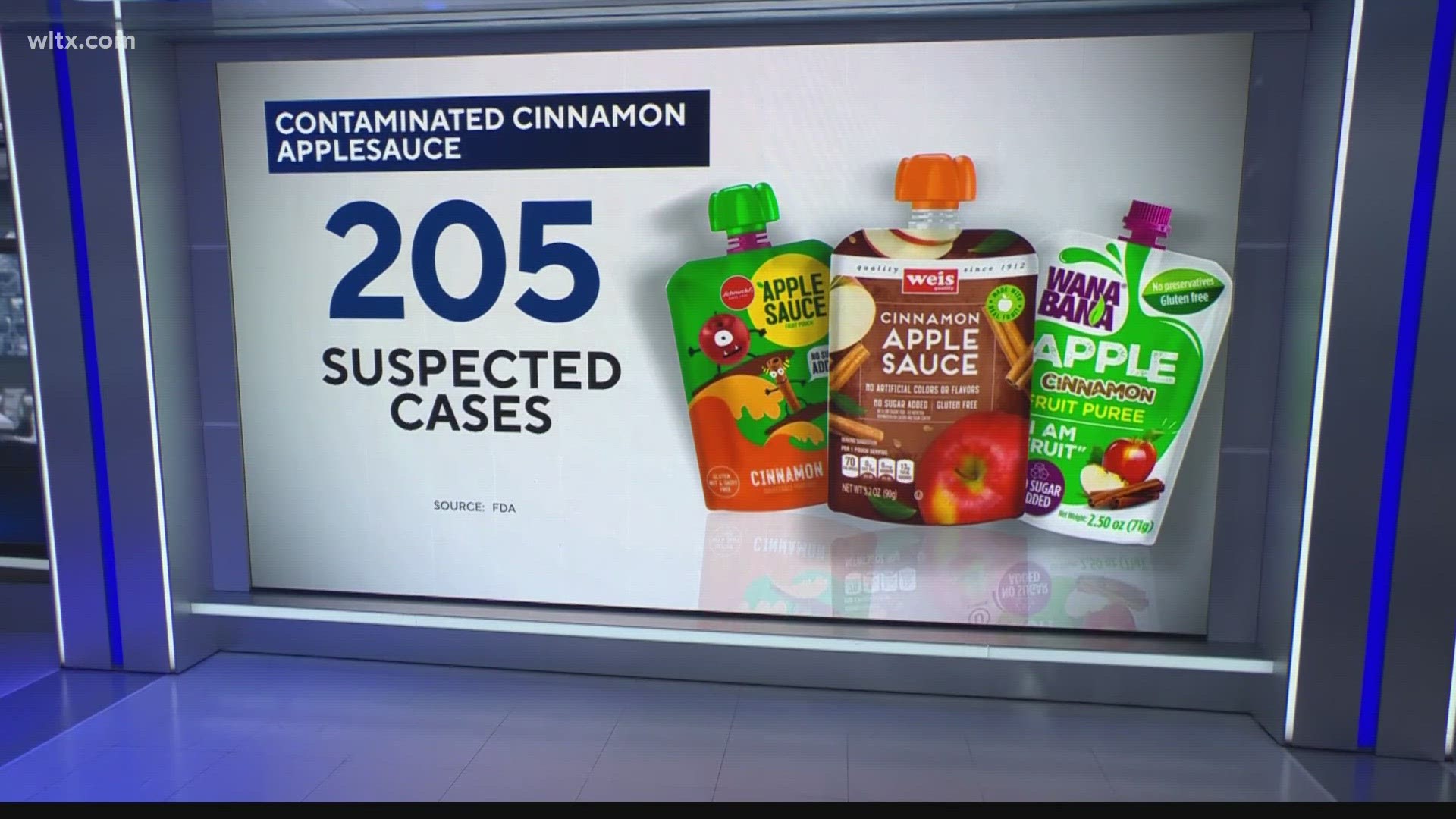COLUMBIA, S.C. — South Carolina's health agency said it's removed from store shelves across the state a particular brand of applesauce that it says contained a high level of lead.
This is part of a broader investigation, along with the Food and Drug Administration, that began in November of last year into several brands of cinnamon applesauce that was intended for children's use. Back then, DHEC’s Rapid Response Team notified more than 20,000 food retailers in South Carolina, alerting them to the recall and requesting that they remove these products from store shelves.
The South Carolina Department of Health and Environmental Control (DHEC) said it found lead in a sample of applesauce associated with a child who had a high level of lead.
The affected products are the following:
- WanaBana brand apple cinnamon fruit purée pouches (sold nationally)
- Schnucks brand cinnamon applesauce pouches (sold in Midwest states)
- Weis brand cinnamon applesauce pouches (sold in Mid-Atlantic states)
DHEC said since early November, several children in the state have been tested due to their parents or doctors being concerned about the WanaBana recall. DHEC says they are three children who had consumed the products had had blood lead levels above the reference value for lead, which is a level used to identify children whose levels are higher than most children's.
The agency says in the case of one children, product testing finished on January 4 showed lead levels more than 1,000 times the FDA standard for children. (The standard is 0.01 part per million). No product was available for the other two children.
DHEC said the pouches were mainly sold at Dollar Tree stores in South Carolina, so they visiting more than 130 locations and say they found the recalled pouches at at least 14 stores. DHEC said the pouches were removed quickly and the SC Department of Agriculture was notified. The ag department found out 157 cases has been sent to stores after the recall, but the state was able to stop the shipments from being sold.
Children with lead exposure often have no symptoms. Lead exposure only can be confirmed with a blood test.
Parents and caregivers of children who may have consumed recalled products should contact the child’s health care provider about getting a blood test for lead. Based on your child’s blood lead test results, health care providers can recommend follow-up actions and care.
Families and health care providers with questions may contact DHEC’s toll-free lead line at 866-466-5323 (866-4NO-LEAD).
"The quick response by staff and our cooperation with the FDA and the Centers for Disease Control and Prevention have helped protect South Carolinians from this particular lead source,” said Sandra Craig, Food and Lead Risk Assessments Division Director. “If you are concerned about a potential lead exposure, please discuss the matter with your health care provider to see if a blood lead test is right for you or your family member. Young children, pregnant women and nursing mothers may be most at risk

